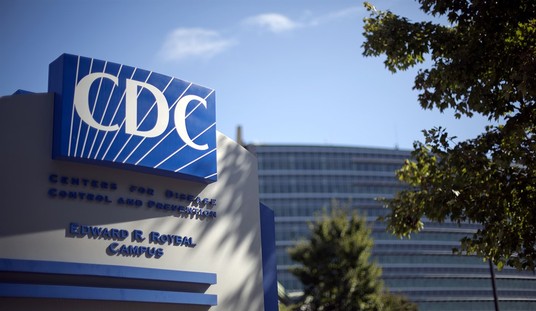The global financial crisis is sparking a new wave of anti-Americanism in Europe, where the intensity of America-bashing in some countries is reaching levels not seen since the United States invaded Iraq in 2003.
The turmoil on Wall Street has been greeted with a smug chorus of ridicule emanating from nearly every European country, whether big or small, rich or poor. The overwhelming sentiment among many political and media elites in Europe has been one of unabashed Schadenfreude over what they hope will bring a final, ignominious end to the much-hated “Anglo-Saxon economic model.”
While much of the initial reaction emanating from Europe was self-congratulatory gloating to the effect that Europe’s “superior” economic model made it immune to the kind of problems plaguing the United States, the fact that this has now proved to be false has unleashed an entirely predictable populist reaction; European leaders of all ideological stripes are now busy blaming the United States for the financial problems in their home countries, as if anti-Americanism will somehow shield them from political fallout of the trouble that lies ahead. Many Europeans are calling for an end to American global economic dominance, with, of course, a correspondingly greater regulatory role for Europe.
Some of the most virulent anti-Americanism stems, as usual, from Germany, where media soothsayers have had a field day prophesying America’s imminent downfall. The weekly news magazine Der Spiegel, for example, has a cover showing the Statue of Liberty’s torch, extinguished, with the headline: “The Price of Arrogance.” The cover of the Die Zeit newspaper shows a Bald Eagle plunging to Earth, feathers flying, with a flag of the European Union clutched in one of its talons. Another Die Zeit article titled “USA: Can the Superpower Learn to Step Down?” asks: “How can the land of victory and optimism adapt to life after the imperial moment?” And so on.
German politicians have joined in the America-bashing too. Finance Minister Peer Steinbrück predicts that “the U.S. will lose its superpower status in the world financial system.” (He also said “the financial crisis [is] above all an American problem,” words he ended up eating a few days later while trying, unsuccessfully, to rescue Germany’s Hypo Real Estate banking group.) Meanwhile, Joschka Fischer, the former foreign minister, says: “In a few weeks, we will mark the 19th anniversary of the night that the [Berlin] Wall came down and the Cold War came to an end. In the following years, the United States stood alone at the summit of global power. Today, just 19 years later, we are witnessing the decline of American power. This decline can be traced essentially to a mixture of arrogance and blindness.” He then goes on to blame the neoconservatives for a broad litany of global problems. Fischer’s solution: Europe should take over.
The sentiments voiced by German elites have been echoed by their counterparts all over Europe, including Britain, France, Italy, and Spain, where Socialist Prime Minister José Luis Rodríguez Zapatero had the chutzpah to declare: “The greatest failure of economic theory has a name, neoconservatism.” As it happens, Spain is currently facing the worst economic crises in its modern history, and all of it is of its own making. Denmark, France, and Ireland, meanwhile, are now in recession, due largely to higher oil prices and slowing global growth, and only indirectly to the credit crisis.
How is one to interpret the resurgence of anti-American sentiment in Europe? The fact that the credit crisis began in the United States has led many Europeans to believe, once again, that they (and their economic and social model) are morally superior to America. In any case, it has clearly been much easier for Europeans to blame America than for them to admit that many of their problems are home grown. Indeed, many of the problems facing European banks stem from bad loans in Europe, not America; European banks took on too much risk and many were hooked on easy profits from mortgage debt. Moreover, the truly grave financial problems in countries like Ireland and Spain stem from decades-long real estate bubbles that have recently burst. Greed is hardly unique to America, although few Europeans would be willing to admit as much.
Europeans have also complained that the United States needs to get its house in order and pass a financial rescue package, which the U.S. Congress has now done. Meanwhile, French President Nicolas Sarkozy on October 4 called a meeting of the main European economies to craft a common European response to the crisis, in the grandiose hopes of creating a “new global financial system.”
Sarkozy has bragged: “After this crisis we will have built the pillars of a new financial world.” Of course, the European pillar of that new system presumably would be a few notches higher and more important than the American pillar. But just one day after Sarkozy’s summit, European plans to mount a collective response to the financial crisis were in tatters. Once again, European disunity held sway as individual countries rushed to implement national, rather than unified, policies, lest one European country get an upper hand at the expense of another.
In their obsession to turn Europe into a global superpower, European elites have time and again overestimated their ability to make a fragmented Europe act like a single unified actor, especially in times of crisis like now. And when failure boils into frustration, as was the case when Europeans were unable to unite to prevent the Iraq War, they resort to grandiose gimmicks, such as the European Constitution, to forcibly create a fake sense of unity, at least on paper.
In the end, anti-Americanism is the one of the few things on which most Europeans can actually agree. It has become a politically acceptable way to evade responsibility by blaming America for Europe’s own shortcomings. Anti-Americanism also forms the basis of a new pan-European identity. This artificial post-modern European “citizenship,” which demands allegiance to a faceless bureaucratic superstate based in Brussels, is being set up in opposition to the United States. In essence, to be “European” means to not be American. As such, anti-Americanism is the glue that holds a fractured Europe together.
If disunity is Europe’s Achilles’ heel, E Pluribus Unum is still America’s great advantage. Being relatively nimble, the United States is likely to come out of this current crisis on a financial footing that is far stronger than that of Europe. This implies that European resentment of America will increase, and even more so if millions of ordinary Europeans end up losing their life savings in insolvent European banks.
As a result, Americans should expect European anti-Americanism to grow worse in the years ahead, regardless of who becomes the next American president. Whether or not Americans should care, that is another issue.









Join the conversation as a VIP Member